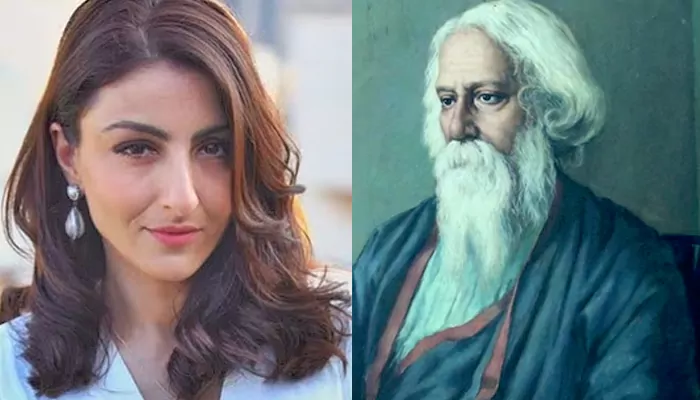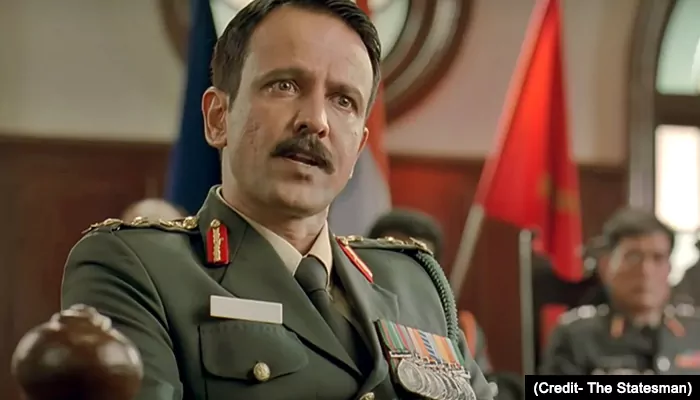Happy Birthday Woody Allen: A Decade's Best - Top 10 Masterpiece Flicks by the Icon
- Admin
- 1 year ago
- 6 minutes read

The call for a revival of Woody Allen's cinematic legacy prompts an annual tradition on his birthday: a celebration of his greatest works. Allen's vast body of work is a testament to his tireless and prolific dedication to filmmaking. Unlike many modern auteurs, Allen approaches his craft with the discipline of the classical studio era, viewing it as a job to tackle daily rather than a burdensome calling. His latest offering, "Magic in the Moonlight," continues a remarkable streak of almost one film per year over five decades. Remarkably, Allen often moves on swiftly from each project, showing little concern for their legacy. His focus remains firmly on what lies ahead, leaving little time for introspection. While he may not engage with retrospectives, the need for rejuvenation in his canon persists, underscoring the annual tradition of commemorating his greatest hits
Bananas (1971).
In his 1981 satirical film, Stardust Memories, Allen famously bemoaned the audience's preference for his "earlier, funnier films" over his more artistically ambitious works. However, one can't help but understand the appeal of the masses. Bananas, a brisk 82-minute comedy, exudes a carefree and sketch-like quality, effortlessly transitioning from one uproarious comic scenario to the next without concerning itself with a coherent plot. Yet, the lack of narrative cohesion hardly matters, as the film's side-splitting humor transcends mere frivolity, elevating the very gags themselves to a form of substantial entertainment.
Sleeper (1973)
"Sleeper," a high-concept comedy that marked a departure from Allen's later works in the late 1970s, serves as a comedic masterpiece. In the film, Allen portrays Miles Monroe, a quintessential nebbish, cryogenically frozen in 1973 and awakened 200 years into the future. The humor doesn't stem from the expected fish-out-of-water scenario, but rather from the future society's bewilderment at this peculiar Manhattanite dweeb. This ingenious twist is filled with genre-defying absurdity and moments of poignant bathos, making it a testament to Allen's comedic prowess and his ability to craft a unique and timeless comedic narrative.
Manhattan Murder Mystery (1993)
Decidedly more lighthearted than the melodrama explored in his previous work, "Husbands and Wives," the cheerful comedic thriller, "Manhattan Murder Mystery," stands out as one of Allen's most remarkable "minor" films, a distinction more significant than it may initially seem. Originally conceived as a framework for "Annie Hall," it preserves the same manic wit and creativity of its spiritual predecessor, effortlessly earning its place as a standout amidst a decade filled with cinematic missteps.
Crimes and Misdemeanors (1989)
"Crimes and Misdemeanors" explores life in two contrasting narratives, tragedy and farce, with a twist in their conclusions to align with Woody Allen's existentialist perspective. Martin Landau, embodying tragedy, commits a grave crime and escapes retribution without a hint of remorse. Meanwhile, Allen, the perpetual comedic protagonist, faces an unjust punishment as his virtuous life crumbles, his mentor's demise, and his beloved's betrayal. This film stands as Allen's darkest, painted in pitch-black hues, and unrelenting in its bleakness. Yet, within its profound hopelessness, it reveals profound wisdom, making it one of his most thought-provoking works.

Annie Hall (1977)
The charm of Allen's early comedies lies in their diverse inventiveness, infusing "Annie Hall" with a lively, jazz-like spirit. It propels us through a series of comedic whims with unbridled enthusiasm. This is a love story wrapped in reverie, the quintessential postmodern romance, where reality constantly flirts with the edge of merging into dreams. Here, contemporary media theorists make unexpected intellectual appearances, and arguments are playfully interrupted by animated interludes, creating a cinematic experience like no other.
Love and Death (1975)
Allen's pivotal film marked a significant transition in his artistic journey, signaling a shift from his "early, funnier" works towards more profound comedic dramas. However, Love and Death transcends a mere compromise between Sleeper and Annie Hall. Notably, it surpasses them in humor, deftly exploiting its parodic exploration of Russian literary history. It stands as one of Allen's most successful endeavors, harmonizing his intellectual depth with the popular comedic flair that propelled him to stardom. This film strikes a unique balance, embodying both wit and substance, showcasing his evolution as a filmmaker.
The Purple Rose of Cairo (1985)
A fondness for "the enchantment of cinema" in the heart of a nostalgic individual may risk transforming this into nothing more than a tenderly yearning tribute to the golden age of the medium. However, Allen's intelligence prevents this inclination from overpowering the narrative. Instead, "The Purple Rose of Cairo" emerges as a passionate homage tinged with bitterness and remorse, a stark reminder accentuated by the film's brilliantly melancholic conclusion. It seems to convey that movies do offer an escape, but a fleeting one lasting only for 90 minutes.
Manhattan (1979)
In the realm of "Allenness," replete with its signature anxiety, erudition, in-jokes, and one-liners, the finest attributes of Manhattan owe much to Woody Allen's astute choice of collaborators and contemporaries. It's akin to a curatorial masterpiece; the smoky chiaroscuro skillfully crafted by cinematographer Gordon Willis, the jubilant notes orchestrated by George Gershwin, and the fiery intellectual prowess exhibited by Diane Keaton's performance all stand as a testament to a director whose artistry is enlivened by his discerning taste.
Hannah and Her Sisters (1986)
Allen's most exceptional work closely adheres to the familiar template he's consistently employed throughout his extensive five-decade career. On the surface, it appears indistinguishable from his previous creations—a dry, sophisticated comedy-drama set in New York, delicately laced with unease and infused with intellectual charm. Nevertheless, Hannah and Her Sisters excels in nearly every aspect; from its intricate and profound script, skillfully juggling conflicting desires and emotions, to its outstanding ensemble cast, notably led by Michael Caine at his most contemplative and tender. Even its all-encompassing, exemplary soundtrack contributes to its magnificence. It transcends being merely the finest Woody Allen film; it embodies the quintessential exemplar of cinematic brilliance.
Zelig (1983)
The central idea of "Zelig" by Woody Allen is our remarkable adaptability. The film explores how individuals can mold themselves to gain social acceptance. Despite its quirky premise—presented as a documentary about a man who physically transforms to fit in—it delves into the emotional and psychological truths of our desire to avoid confrontation. "Zelig" cleverly highlights this human inclination, making us confront our own vulnerability to conformity and the lengths we'll go to in order to evade conflict.











